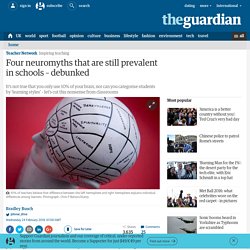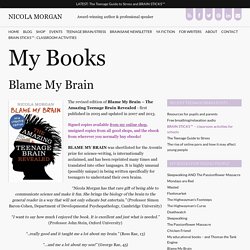

Teenagers can 'catch' moods from friends, study finds. Teenagers can “catch” moods from their friends and negative moods appear to be more contagious than positive, a study has found.

The study by Oxford and Birmingham universities investigates “emotional contagion” among teenagers, to see the impact of individuals’ moods within a shared social network. It found that moods become similar to those of the people they spend time with, but there is a tolerance of different moods, and grumpy teenagers are no less popular with their peers than those with a more sunny disposition. The research was based on two musical ensembles involving musicians aged 15-19 who took part in concert tours abroad. During the course of the tour in the summer of 2018, each of the 79 participants kept a diary recording daily moods and social interactions.
One of the authors, Dr Per Block, of Oxford’s Leverhulme Centre for Demographic Science, said: “Our study shows conclusively that individuals are affected by how others around them are feeling. Four neuromyths that are still prevalent in schools – debunked. It is no surprise that many teachers have an interest in neuroscience and psychology since areas such as memory, motivation, curiosity, intelligence and determination are highly important in education.

But neuroscience and psychology are complex, nuanced subjects that come with many caveats. Although progress is being made towards understanding what helps and hinders students, there is still a disconnect between the research in labs and what happens in many schools. BBC iWonder - Can singing in a choir make me healthier? If you feel anxious, breathe like this... Russell Foster: Why do we sleep? The Science of Practice: What Happens When You Learn a New Skill. Growth Mindset Video. Teenagers and sleep - Family Lives. Understanding your teen's body clock "My son David almost missed one of his GCSE’s this summer because he just can't get out of bed in the mornings," says 38 year old Ellen, from Huddersfield.

"I have to leave the house at 7.30 and then I'm worrying the whole time, phoning him every 10 minutes to try and make sure he gets up on time for school. But he’s been late several times because he just can’t wake up. " How hormones affect the teenage body clock Teenagers and their parents have very different body clocks. When it comes to sleep patterns, there are definite changes in teenagers - particularly around the timing of sleep, explains Neil Stanley, a sleep researcher at the University of East Anglia.
Scientist David Bainbridge, author of "Teenagers: A Natural History" believes this is due to a 'rewiring' of the brain in adolescence which may mean that the teenage body clock runs more slowly than an adult's, making the day seem longer. The importance of sleep. BRAIN POWER: From Neurons to Networks. Why Procrastinators Procrastinate. PDF: We made a fancy PDF of this post for printing and offline viewing.
Well ... Procrastinators actually do not get satisfaction neither from watching Utubes, or playing videogames... They believe they will get it instead of being productive. Even worse, a procrastinator feels often bad after having lost so many valuable lifetime playing games etc. My father and myself, both procrastinators, believe it or not, were extreme hard workers, and both of us dedicated our lives in being/trying the best at work, at university and at school and always driven by "deadlines". Dad died too soon at age 66 in 1991, and I lost my job in 2013 (after 34 years over full-time active and due to severe illness). I believe that in my case I became procrastinator because others sucked too many energy out of me incl. My mum who has always been psychologically ill,without getting in return the right and balanced reward, which is not money for me. Procrastinators are lived by others, and lack control on taking their own agenda to a primary level, because their agenda "has been lost". At least that's what I believe ;-) – stinnie
If you put it off until later... Then you have today's work and tomorrow's to do! And tomorrow will bring its own troubles... Also haven't you heard... " why put off until tomorrow what you can do today !" I'm here for you... I'd LOVE to make a convert... Do you think you can change? I have questions for you! ... Chelle... P.S. If I told you what I've accomplished since I posted last night I doubt you would believe me. – mychelle21
Buy it here. (Or see a preview.) pro-cras-ti-na-tion |prəˌkrastəˈnāSHən, prō-| noun the action of delaying or postponing something: your first tip is to avoid procrastination. Who would have thought that after decades of struggle with procrastination, the dictionary, of all places, would hold the solution. Avoid procrastination. While we’re here, let’s make sure obese people avoid overeating, depressed people avoid apathy, and someone please tell beached whales that they should avoid being out of the ocean. No, “avoid procrastination” is only good advice for fake procrastinators—those people that are like, “I totally go on Facebook a few times every day at work—I’m such a procrastinator!” The thing that neither the dictionary nor fake procrastinators understand is that for a real procrastinator, procrastination isn’t optional—it’s something they don’t know how to not do.
Pretty normal, right? Teen brain - science and risk. Secrets of the teenage brain. Several years ago Frances E Jensen’s 16-year-old son wrote off a car.

A few years earlier, her other son had returned from a friend’s house with his hair dyed jet black. The University of Pennsylvania neurologist was finding her teenagers’ erratic behaviour increasingly taxing, so she decided to study teenage thought processes and gathered her research in the book The Teenage Brain. She found that while much had been written about teen psychology and parenting, no one had explained the neurons and cerebral connections that make those years such a unique – and terrifying – part of growing up. The teenage brain has only recently become a subject for serious research, which shows how little was known about it.
Blame My Brain. The revised edition of Blame My Brain – The Amazing Teenage Brain Revealed - first published in 2005 and updated in 2007 and 2013.

Signed copies available from my online shop, unsigned copies from all good shops, and the ebook from wherever you normally buy ebooks! BLAME MY BRAIN was shortlisted for the Aventis prize for science-writing, is internationally acclaimed, and has been reprinted many times and translated into other languages.